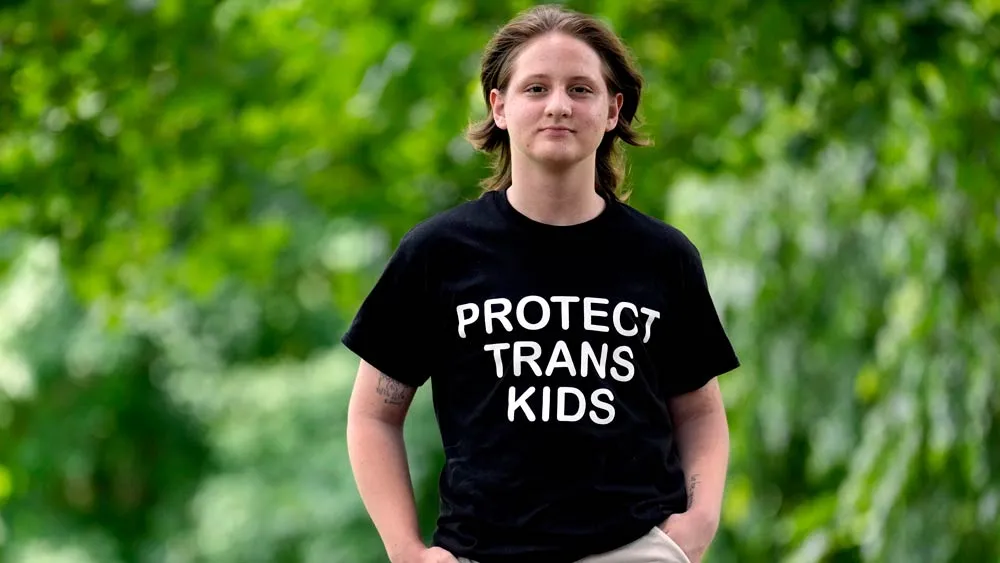October 16, 2013
Michigan's 2004 Gay Marriage Ban Faces Challenge
Bobby McGuire READ TIME: 3 MIN.
DETROIT -- Two Detroit-area nurses wanted to adopt each other's children, not rewrite Michigan law on gay marriage. But their lawsuit could end up overturning a 2004 constitutional amendment banning same-sex marriage that passed by a landslide.
U.S. District Judge Bernard Friedman may throw out the law Wednesday after hearing arguments in his Detroit courtroom. It was his suggestion that Jayne Rowse and April DeBoer amend their lawsuit last year, an invitation that has gay rights supporters believing marriage may become a reality in Michigan.
"I would be thrilled," said the Rev. Bill Freeman of Harbor Unitarian Universalist Congregation in Muskegon, who is poised to handle same-sex weddings. "I opposed the ban. The country and the people of Michigan have done a 180 on the question of gay rights and same-sex marriage."
Even if Friedman kills the law, he could freeze his decision and allow the state of Michigan to appeal, which would stop a rush to county courthouses for a marriage license.
Thirteen states and the District of Columbia allow same-sex marriage, but the issue can be found in courtrooms around the country. The New Jersey Supreme Court said it will soon decide whether gays can marry there, and a Utah federal judge in December will hear arguments about the state's ban.
DeBoer and Rowse are raising three adopted children with special needs. They filed a lawsuit in 2012 hoping to strike down a state law that bars same-sex partners from adopting each other's kids. The case was groundbreaking on its own, but then Friedman suggested challenging the gay marriage ban. If the ban is overturned, other laws, such as the adoption restriction, likely would fall, too.
A constitutional amendment declaring marriage as between a man and a woman was approved by 59 percent of Michigan voters in 2004.
Attorneys for DeBoer and Rowse say the amendment violates the Equal Protection Clause of the U.S. Constitution, which bars states from treating people differently. They believe they'll benefit from a June decision by the U.S. Supreme Court, which struck down part of the federal Defense of Marriage Act, saying married gay couples are entitled to the same federal benefits available to straight couples.
"Here and now, as a matter of constitutional law as well as of social policy, the time for ... dehumanization is past," the couple's lawyers said in a court filing.
Michigan, meanwhile, is highlighting the Supreme Court's recognition that states do have authority to regulate marriage.
"Defining marriage as between one man and one woman furthers Michigan's legitimate interests in attempting to provide the optimal family setting for its children," the attorney general's office said in a court filing.
Gary Glenn, who leads the conservative American Family Association of Michigan, said it would be a mistake for a judge to extinguish a law on the books for nearly a decade.
"One Detroit lawyer in a black robe doesn't have the legitimate constitutional or moral authority to overturn the will of millions of Michigan voters," Glenn said.
In Ann Arbor, the Washtenaw County clerk's office said judges and clergy will be available at the local courthouse if Friedman allows same-sex marriage. The county will waive the typical three-day waiting period to get a license, at least on Thursday.
"There's obviously a lot of emotion, and a lot of people have been waiting a long time," said Ed Golembiewski, chief deputy clerk.
Bishop Jerry Brohl of Blessed John XIII Community, a church for Christians of all stripes in Wyandotte, near Detroit, said he's eager to bless same-sex marriages, even if he doesn't know the couple.
"Under normal circumstances, I'd want to spend a bit more time with a couple," he said. "But under these circumstances, I feel I need to make an exception. You have two mature persons who are committing themselves to a relationship based on love."
---


